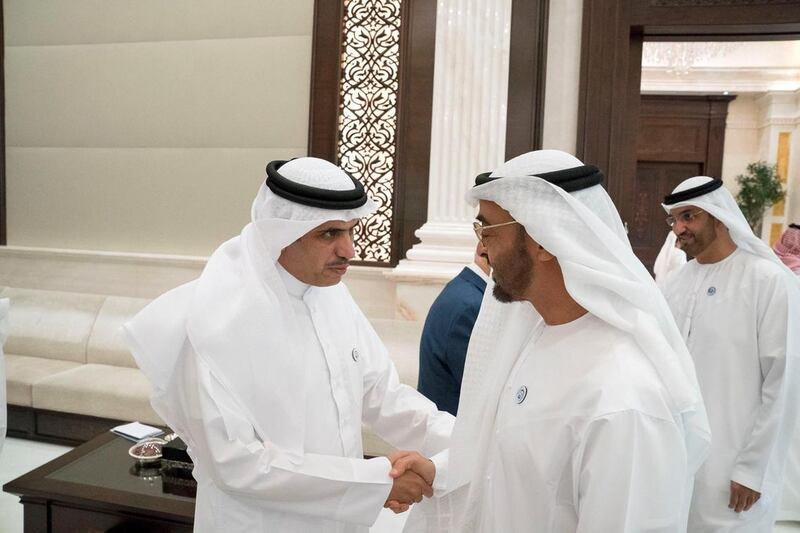United we stand. That was the message from the Arab quartet, who met to underline the importance of working together to counter extremist ideologies perpetuated in the region to destabilise its solidarity across borders. Much of that dubious ideology is disseminated through politicised media outlets, which seek to cast doubt and smear sacrosanct institutions. To counter the false narrative, Arab states fighting terrorism need to develop a cohesive media strategy to combat the scourge of extremism. That was the message from Sheikh Mohammed bin Zayed, the Crown Prince of Abu Dhabi and Deputy Supreme Commander of the UAE Armed Forces, to the ministers of information from the quartet of nations – comprising, in addition to the UAE, Saudi Arabia, Egypt, and Bahrain – in whose honour he hosted an iftar reception on Monday in Al Bateen Palace.
It has been almost a year since the quartet initiated its boycott of Qatar in a move necessitated by Doha's refusal to relinquish its longstanding support for terrorist groups. Qatar, described by US President Donald Trump as a "funder of terrorism at a very high level", has extended hospitality to extremists on its soil, patronised forces who threaten the stability of neighbouring states, financed an assortment of terrorist organisations and provided a haven for Tehran in the Arab world. Simultaneously, it has deployed its broadcasting organs to spin propaganda against all those who, dismayed by Qatar's actions, sought to restrain it through legal and diplomatic means.
Instead of repenting and changing its behaviour, Qatar has sought to double down. The quartet's boycott has, nonetheless, yielded concrete results. The international community, led by the US, has intensified its pressure on Doha to sever its links to terror; terrorist activity has declined in Bahrain and the economy of Qatar has taken a hit, with state-backed Qatar Airways preparing to seek an imminent bailout.
Yet those most directly exposed to Qatar's aggression cannot afford to be complacent. Sheikh Mohammed's call to combat the toxic propaganda radiating from Qatar – and from Iran and its proxies – with a comprehensive media strategy is essential and timely. Such a strategy affirms the unity of the Arab world and counteracts the spread of extremism by amplifying the voices of moderation. Its focus on social media platforms will be indispensable to stamping out radicalism in our age. It is time for the advocates of a tolerant future to step forward.





